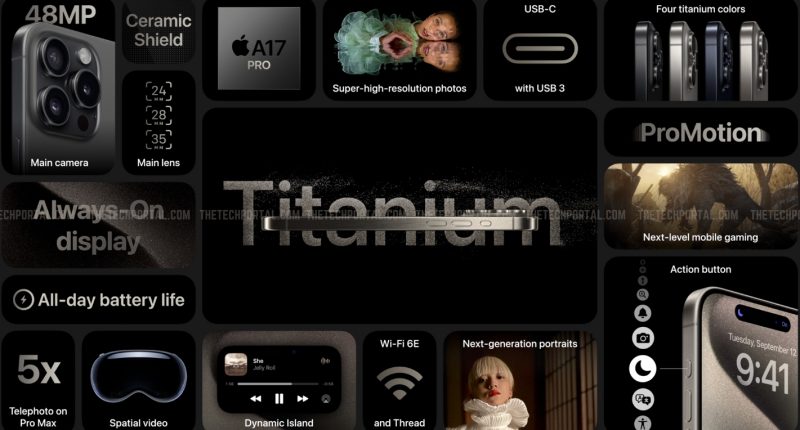Apple is facing further headwinds in the Chinese market, its largest outside of the U.S. According to Jeffries, the first week of 2024 saw a staggering 30% decline in iPhone sales in China, giving away a large share to domestic rivals, particularly Huawei. This downturn became a primary catalyst for an overall double-digit contraction in China’s smartphone shipments, raising questions about Apple’s resilience in one of its most critical markets.
The repercussions of Apple’s decline reverberated throughout China’s smartphone market, leading to an overarching double-digit drop in shipments during the initial week of 2024. Despite strategic efforts, including aggressive discounting of various iPhone models on major Chinese online platforms, the company struggled to maintain its foothold. Even with aggressive discounting measures – a 16% price reduction on the iPhone 15 Pro and iPhone 15 Pro Max on platforms like Pinduoduo, for instance – Apple’s sales plummeted. This raises questions about the efficacy of pricing strategies in the face of fierce competition from domestic players, with the Chinese government’s increasing restrictions on U.S. tech, particularly on usage of iPhones among government employees.
The 30% drop in Apple’s sales represents a massive slide on from the 3% year-over-year decline witnessed throughout 2023 in its third-largest market. Jefferies analysts, deriving insights from their market tracking, noted that the 3% decline in 2023 translated into a 0.4% decrease in Apple’s market share, signaling a tangible impact on the company’s standing in China. A significant factor contributing to Apple’s decline is identified as heightened competition from Chinese counterparts, with Huawei leading the charge. Huawei strategically launched the Mate 60 series in August 2023, marking a significant resurgence in the high-end smartphone market. This series is viewed as Huawei’s comeback after facing setbacks due to U.S. sanctions.
This development unfolds against the backdrop of a potential rebound in the Chinese smartphone market, as hinted by various analysts. While other brands experienced growth in December, Apple’s struggle highlights the challenges posed by resurgent domestic players. Discounts on Apple’s smartphones increased in response, albeit without stimulating volume growth.
Analysts at Jefferies anticipate a challenging trajectory for Apple throughout 2024, with the company likely to grapple with sustained competitive pressures from domestic rivals. The forecast paints a bleak picture, suggesting a continued double-digit decline in Apple’s shipment volumes, further complicating the company’s position in the Chinese market. Contrastingly, Huawei is positioned to capitalize on Apple’s challenges, projecting a significant expansion of its market share. Jefferies’ estimates indicate that Huawei is poised to ship approximately 64 million smartphones worldwide in 2024, showcasing a substantial increase from the estimated less than 35 million shipped in 2023.
The Tech Portal is published by Blue Box Media Private Limited. Our investors have no influence over our reporting. Read our full Ownership and Funding Disclosure →






